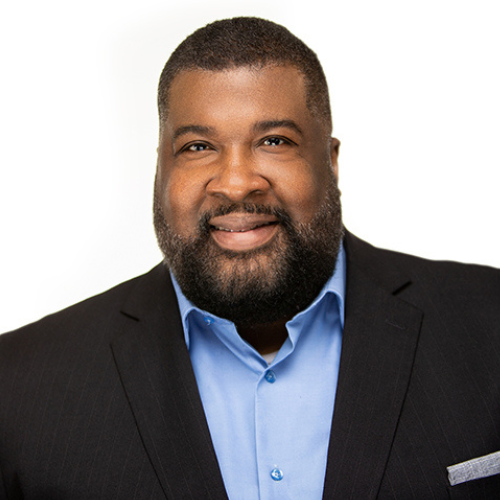How can you build a legacy that reflects your values while creating wealth with integrity and purpose? For many, it's not just about amassing wealth but doing so in a way that leaves a positive mark on future generations. How can you ensure your financial decisions today have a lasting, meaningful impact? It starts with adopting strategies that are ethical, transparent, and aligned with a sense of responsibility.
In this blog, we will explore the significance of building a legacy, why integrity is crucial in wealth building, and how to craft a lasting legacy through ethical wealth creation.
The Significance of Building a Legacy
Building a legacy is about more than just having lots of money. It’s really about making a mark on the world that shows what you believe and care about. When you think about your legacy, you’re thinking about how your life will be remembered by the people who come after you. It’s not only about leaving behind cash but also sharing important lessons, fun traditions, and values that can guide others in their lives.
Picture a big, strong tree that offers shade and shelter even when it’s no longer there. The things you do today can help others feel safe and inspired for many years to come. It’s like planting seeds that grow into something beautiful. Your actions can teach people how to be kind, brave, and helpful, just like a tree teaches us the importance of nature and care.
Your legacy is like a storybook written with your choices and actions. Every little decision you make adds to this tale. Are you making friends, helping others, and doing what’s right? These moments matter a lot when it comes to creating a legacy that has real meaning. You want to be remembered not just for your achievements but for how you used your success to lift up those around you. It’s all about making a positive wave that can inspire others long after you’re gone.
Why Integrity Matters in Wealth Building
Integrity is super important when it comes to building wealth. Think of it like having a strong backbone that supports everything you do. When you make decisions about money, it’s not just about getting more in your bank account. It’s also about making sure those choices match who you are and what you believe in. Just like a house needs a good foundation to stand tall, your wealth needs integrity to grow strong and last.
Imagine you’re trying to build a really cool fort with your friends. If everyone is honest and plays fair, the fort will be awesome, and everyone will have a great time. But if someone lies or cheats, the fun can quickly turn into a big mess. That’s how it works in the real world too! When you act with integrity, you earn the trust of others. This trust helps you create friendships and partnerships that can lead to new chances and fun projects you might not have found on your own.
Making choices about money can sometimes feel confusing. But when you have integrity, it’s easier! Instead of stressing about what might be best for your wallet, you can think about what feels right and true to you. This way, you can make decisions that not only protect your wealth but also make you feel good inside. You’ll be proud of what you’re building, knowing it reflects who you are.
Crafting a Lasting Legacy Through Ethical Wealth Creation
Crafting a lasting legacy through ethical wealth creation means building wealth in a way that is not only beneficial to you but also positively impacts others and the world around you. Here are some key points to consider:
1. Practice Transparency:
When you practice transparency in your financial dealings, you lay the foundation for a legacy built on trust and ethical wealth creation. Being open about your financial decisions means sharing information honestly, whether it's with your family, business partners, or the community. This openness fosters a sense of integrity that can inspire others to act similarly, creating a ripple effect of honesty and trustworthiness.
Imagine you're running a business. By sharing your financial statements with your team, you not only build trust but also empower them to make informed decisions. This transparency shows that you value their input and are committed to a common goal. It's like showing your cards in a game; everyone knows where they stand, and you all work towards winning together.
Ensuring transparency also means being accountable. If a mistake happens, admit it, learn from it, and move forward. This approach builds respect and strengthens relationships. By practicing transparency, you demonstrate that wealth isn't just about money but also about the values you uphold. Your legacy becomes more than just financial success; it becomes a testament to ethical and purposeful living.
2. Invest in Education:
Investing in education is like planting seeds for growth. When you learn, you gain the skills to make smart money choices and create wealth the right way. Imagine you're a gardener; the knowledge you gain is the water that helps your garden thrive.
Education isn't just about getting a degree; it’s about understanding right from wrong in business. Think of yourself as a painter — each new lesson is a color you add to your masterpiece. Every time you apply what you learn, you create a beautiful financial journey and inspire others along the way.
Learning keeps you true to your values, acting as a compass that guides you. By reflecting on what matters, you ensure your quest for success aligns with your principles. Whether through books, workshops, or discussions, continuous learning helps you focus on what’s important, building a future that reflects your dreams.
3. Choose Ethical Investments:
Choosing ethical investments means aligning your money with your values, and ensuring your financial growth supports positive change in the world. When you invest ethically, you're not just watching your bank account grow; you're contributing to companies that prioritize sustainability, fair labor practices, and community development. It's about making sure your financial decisions reflect what you believe in, making a difference in more ways than one.
Start by researching companies or funds that focus on social and environmental responsibility. Look for businesses with clear commitments to reducing their carbon footprint, using renewable resources, or supporting fair trade. Think of it like planting a tree: you're not just investing money; you're nurturing growth that benefits everyone.
You can also explore impact investing, where you actively seek out opportunities that generate measurable, positive social or environmental effects alongside financial returns. This could mean investing in renewable energy projects or companies that promote access to education and healthcare.
4. Incorporate Philanthropy:
Philanthropy is about using your money to help others while also building your wealth. Think of your wealth like a big tree that not only stands tall but also offers shade and fruit. When you give to charity or support a cause you care about, you ensure that your success helps others, too. It’s like sharing your lunch with a friend — everyone benefits, and it feels good to give.
If you're just starting with philanthropy, you don't have to donate a lot at once. You can start small by setting aside a little bit of your money to give to local charities, like food banks or schools. For example, if you earn $100, you might decide to give $5 to a cause that means something to you. It’s important to choose organizations that reflect your values. This way, giving becomes not just a habit but a source of happiness.
When you share your wealth, you also inspire others to do the same. Your actions can encourage your friends and family to give back, too, creating a chain of kindness. By being generous, you're not only making a difference today but also leaving a lasting impact for the future. Remember, every bit of help counts and can change lives.
5. Encourage Generational Wealth:
Generational wealth means building a financial base that helps your family for years. It’s about leaving a legacy that reflects your values, not just saving money. You want your loved ones to understand financial responsibility and carry that knowledge into their futures.
Start by teaching your kids about money. Share stories about hard work and saving, like how you saved up for a special toy. This helps them see the value of reaching goals and making wise choices.
Invest in things that match your values, like eco-friendly businesses. Have open conversations about money in your family, discussing goals and smart spending. This builds a culture of ethical decision-making and helps everyone understand the importance of using money wisely.
6. Plan for Sustainable Wealth:
Planning for sustainable wealth means creating a financial future that reflects your values and benefits future generations. This involves making choices that not only meet your needs but also do good for the world, like investing in companies that care for the environment.
Think of it like planting a tree. You nurture it today, and it grows to provide shade and fruit for years to come. Focus on long-term benefits over quick wins and choose opportunities that match your beliefs. For example, if you're saving for college, consider options from community-focused banks.
Involving your family in these discussions helps everyone understand your financial choices. When everyone is on the same page, it builds shared responsibility. This way, you’re creating wealth for yourself while setting up a legacy that future generations can appreciate and continue.
7. Establish a Family Mission Statement:
Creating a family mission statement is a great way to make sure your financial goals match what’s really important to you. Think of it like a treasure map that shows your family where to go and what to focus on. It helps everyone understand what matters most, making it easier to make decisions together.
Start by gathering your family for a chat about what values you all hold dear. Do you believe in being honest, generous, or perhaps putting family first? This conversation is key, as it helps everyone share their thoughts and ensures everyone feels included.
Once you’ve picked out your core values, write a simple mission statement that reflects them. It doesn’t need to be complicated — just meaningful. For example, you could say, “Our family values kindness, honesty, and wisdom in our financial choices.” Keep this statement handy and check in on it often. It can help you decide if an investment is a good fit or if a spending choice supports your family’s goals.
Conclusion
Building a legacy that reflects your values while creating wealth with integrity and purpose is a fulfilling journey. By focusing on ethical practices, investing in education, and supporting causes that matter to you, you can leave a meaningful impact on future generations.
Remember that every decision you make today shapes the story you leave behind. By prioritizing honesty, responsibility, and kindness in your financial choices, you not only build your own wealth but also inspire those around you to do the same, creating a positive ripple effect that lasts for years to come.
FAQs
1. How can I involve my community in my legacy-building efforts?
Involving your community can be achieved through local volunteering, hosting workshops, or starting initiatives that align with your values. By engaging others in your vision, you create a shared purpose that amplifies your legacy and fosters community bonds.
2. What are some common mistakes to avoid in legacy building?
Common mistakes include focusing solely on financial wealth without considering values, neglecting to communicate your intentions with family, or failing to plan for long-term sustainability. Being aware of these pitfalls can help you stay aligned with your goals.
3. How can I create a financial plan that reflects my legacy goals?
A financial plan that reflects your legacy goals should align your investments, savings, and spending with your values. This involves setting clear objectives, prioritizing ethical investments, and regularly reviewing your financial choices to ensure they support your vision.







